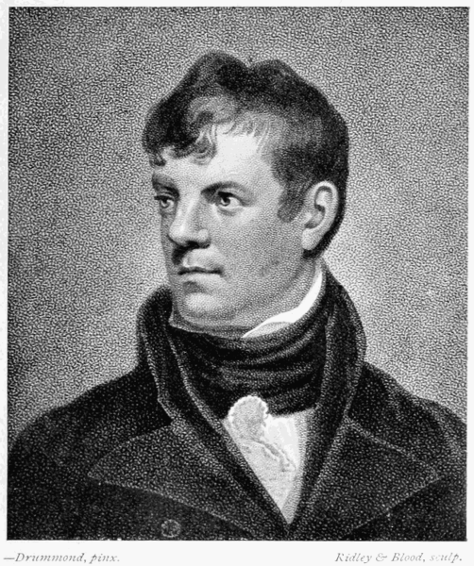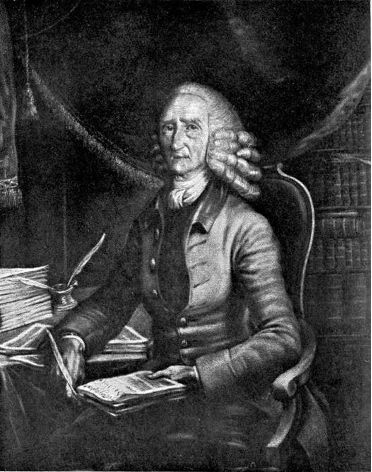This great rascal was born at Launceston in 1654 of respectable parents, and his father, who was well-off, apprenticed him to a linen draper at Bristol when he was fourteen years of age. When he had served out his time, which he did with the repute of being a steady, industrious youth, his father gave him fifteen hundred pounds wherewith to set up in Bristol. About a year after he unhappily married a woman who was the cause of his downfall and finally of his death. She had two thousand pounds of her own, and this added to what he already possessed promised him a considerable extension of his business with corresponding profits.
But the girl he had chosen for his wife had previously engaged herself to a young man of small means, and her parents had forced her into marriage with Simpson as being better off and with good prospects. She resented her compulsory marriage, and did not disguise her indifference to her husband. Although her former lover, in a fit of disgust at his rejection, had also married, Simpson ascertained that they corresponded.
Determined to find out the truth, that she still loved the man, he announced to his wife that he was going to Launceston for ten or twelve days to see his relations. As soon as he was gone his wife sent to invite her galant to supper, and provided for his entertainment a couple of fowls and a bottle of wine. Either the fowls must have been very small, or their appetites voracious.
In the evening Jonathan Simpson returned, entered his house, and rushed to the dining-room. His wife had but just time to shut her galant into the oak chest; but not before Simpson had seen by the movement of the lid that he was there. However, he gave no token of having perceived anything, expressed his delight at so good a supper having been prepared, and despatched his wife to the further end of the town on an errand. No sooner was she gone than he sent for the wife of “Pil-Garlic,” and on her arrival disclosed the man in the box, and enjoyed the scene of recrimination that ensued.
The vexation at the discovery he had made that he could expect no domestic happiness created a great change in Jonathan Simpson’s life. He sold his business, refused to receive his wife back into his house again, and with all the money he could scrape together that amounted to five thousand pounds, quitted Bristol, and swore he would never re-enter it.
He now led a riotous life, spending his money so freely that at the end of eighteen months all his five thousand pounds was gone, and then he took to the road to supply himself with more. After a while he was arrested for highway robbery, and was sent to the Old Bailey, tried, and condemned to be hanged.
His relatives at Launceston now exerted themselves to obtain a reprieve, and by bribery and persuasion they got one, but only at the last moment. Simpson was already under the gallows, with the rope round his neck, when it arrived, and the execution was arrested.
As he was riding back to Newgate behind one of the sheriff’s officers that man asked him what he thought of a reprieve as he stood on the scaffold. “No more,” answered Simpson, “than I thought of my dying day.”
On reaching the prison door the turnkey refused to admit him, declaring that he could not take him in again without a fresh warrant; and as this could not well be obtained, the sheriff’s officer was obliged to let him go free.
“Well,” said Simpson, “what an unhappy dog am I! that both Tyburn and Newgate should in one day refuse to entertain me. I’ll mend my manners for the future, and try whether I cannot merit a reception at them both the next time I am brought thither.”
He was as good as his word, and after his release is believed to have committed above forty robberies in the county of Middlesex within the ensuing six weeks.
He was a good skater, and made a practice of robbing people on the ice between Fulham and Kingston Bridge, in the great frost of 1689, which held for thirteen weeks. He would kick up their heels, and search their pockets as they lay sprawling on the ice.
On one occasion a gentleman whom he stopped gave him a silk purse full of counters, which Simpson took for gold, and so did not examine them till he reached the inn where he put up. When he found that he had been outwitted he quietly pocketed the brass booty, and abided his time till he should meet the same gentleman again. This he did at the end of four months, when he waylaid him on Bagshot Heath, where, riding up to the coach, he said, as he presented a pistol at the gentleman’s head, “Sir, I believe you made a mistake the last time I had the happiness to see you, in giving me these pieces. I have been troubled ever since for fear you should have wanted these counters at cards, and am glad of this opportunity to return them. But for my care I require you this moment to descend from your coach and give me your breeches, that I may search them at leisure, and not trust any more to your generosity, lest you should mistake again.”
The gentleman was obliged to comply, and Simpson carried off the breeches with him to his inn, and on searching them found a gold watch, a gold snuff-box, and a purse containing ninety-eight guineas and five gold jacobuses.
On another occasion he robbed Lord Delamere in an ingenious fashion. That nobleman was driving over Dumoor Heath in his coach well attended by armed servants. Simpson rode up to the carriage and told his lordship that he had been waylaid and robbed by some rogues, two in number, at a little distance. Lord Delamere at once despatched his armed and mounted escort in pursuit, and Simpson took the opportunity of their absence to rob the nobleman of forty pounds. After that experience Lord Delamere vowed he would never again show kindness to a stranger.
At last Simpson was taken near Acton by means of two captains of the Foot Guards, where he attempted to rob both together. There ensued an obstinate fight between them, and Simpson behaved with so much bravery that in all probability he would have escaped, had not one of the officers shot the horse on which he rode, which, falling, carried Jonathan down with it. He had already been wounded in his arms and one of his legs, but both his opponents were also wounded and bleeding. Whilst on the ground he continued to resist with desperation whilst extricating himself from his fallen horse; but the sound of the fray had called up other passengers, and he was overmastered and sent to Newgate, where he found the keeper so much of a friend that on this occasion he was ready to receive him. Tyburn also was sufficiently hospitable not to reject him, and he was hanged on Wednesday, 8th September, 1686, in his thirty-third year.



